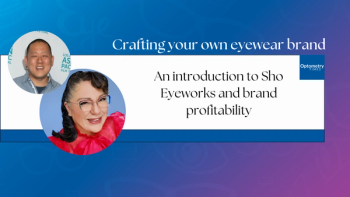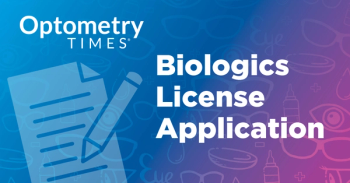
CRU 2023: Navigating challenges in corneal irregularities
Brooke Messer, OD, FAAO, FSLS, shares her anticipation for the second annual CRU Eye Symposium, emphasizing its focus on pertinent content, actionable practice enhancements, and networking with peers and industry representatives, all in the setting of Napa Valley's wine country.
Brooke Messer, OD, FAAO, FSLS, who is part of the faculty for the CRU Eye Symposium, caught up with Sheryl Stevenson, Eye Care Group Editorial Director, to talk about the meeting.
CRU is an acronym that stands for "Current, Relevant, Useful," and the second annual symposium will be held November 10-12, 2023, at the Silverado Resort in Napa Valley, California. S. Barry Eiden, OD, FAAO, FSLS; Stephanie Woo, OD, FAAO, FSLS; and John D. Gelles, OD, FAAO, FIAOMC, FCLSA, FSLS, FBCLA, are the co-chairs of the meeting, with honorary ambassador Vance Thompson, MD, FACS.
If you are interested in attending the CRU meeting,
Transcript
Editor's note: This transcript has been edited for clarity.
Sheryl Stevenson:
I'm joined today by Dr. Brooke Messer, who is part of the faculty of the second annual CRU Eye Symposium. What excites you about this conference?
Brooke Messer, OD, FAAO, FSLS:
I'm most excited to share in some wine tasting and the overall experience of Napa Valley! You can't really get a better place for food and drink and scenery with that time to enjoy with your colleagues. So that's probably [what] I might be most excited about that.
However, I also love this meeting, because it really does focus on what's new and what's relevant, and how we can improve our day-to-day practice. Personally, I'm speaking with Dr. [Steven] Greenstein about complex corneas. We'll talk about irregular corneas, surgical corneas, maybe a few contact lenses, and how those fit into managing our complex eyes, both from a health management and a vision management standpoint. So I really think there's a lot to look forward to.
Stevenson:
That's awesome. Can you take a little bit of a deeper dive into your talk?
Messer:
Yeah, so we'll talk about irregular corneas, keratoconus, corneal transplants, and how we manage them both from a health standpoint, monitoring those eyes, as well as vision management. Irregular corneas need special considerations with contact lenses. We can do things like higher-order aberrations or very customizable lenses from a shape standpoint to best fit these eyes. There's really a lot to dive into. There may be a case or two about other things, too, related to complex corneas from a disease standpoint.
Stevenson:
Fantastic. Is that what you would think is probably what sets this meeting apart from other meetings...the aspect of the relevancy and the usefulness…the focus of the particular topics?
Messer:
Yeah, aside from the wine! I think the wine really sets it apart. From a content standpoint, sticking to relevant topics and what really helps take your practice to the next level, rather than having basics on certain aspects...like we're really going to what helps you make your practice better. What kind of topics can I take and implement into my practice next week or next month. Or what instrument might I be introduced to at this meeting that's next on my must-have list.
It's helpful for both practitioners interested getting into a certain space, like specialty contact lenses or dry eye. But it's also helpful for practitioners who are already well versed in those aspects and being able to connect and visit with vendors about the newest in technologies, whether it be an instrument or modality in managing dry eye or contact lenses, or the latest in topography instruments. It's great for practitioners of all degrees in specialties, whether they're just entering a space or they're already there looking to continue to elevate their practice.
Stevenson:
Is there anything else that you'd like to add that we have not even touched upon?
Messer:
There's ample time for interaction with colleagues versus just going lecture to lecture to lecture to lecture. There's a lot of time to connect with our vendor partners. There's a lot of time to connect with each other, which is sometimes what we need most at meetings rather than getting those CE credits and sitting in class for hours and hours during the day. It's those connections. Finding a mentor, connecting with colleagues that have similar interests and learning from them and collaborating. So again, it's that interaction with our partners—both colleagues and in industry—that it just really gives us a lot to take away in a quick weekend.
Newsletter
Want more insights like this? Subscribe to Optometry Times and get clinical pearls and practice tips delivered straight to your inbox.













































